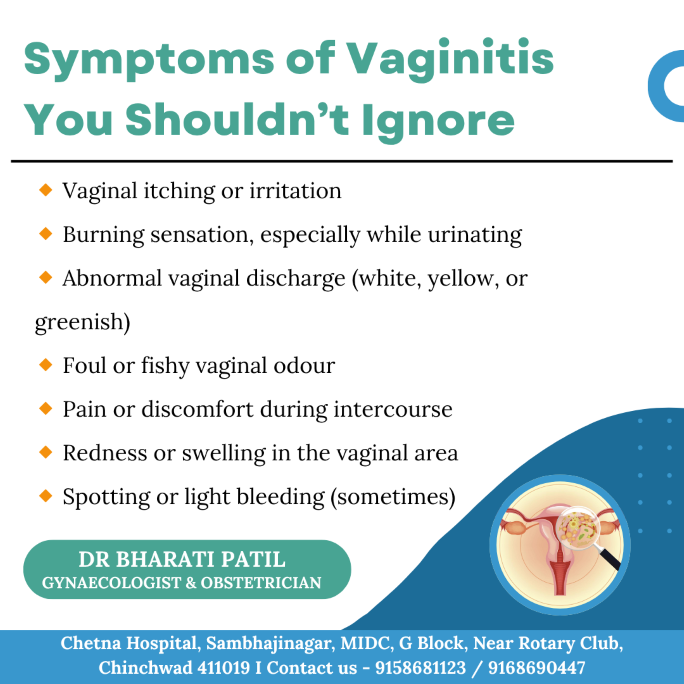Vaginitis is a common condition that affects millions of women across all age groups. It refers to the inflammation or infection of the vagina, often caused by an imbalance in the normal bacteria or due to external irritants. While it is not always serious, ignoring the symptoms can lead to discomfort, recurring infections, or complications if left untreated.
Types of Vaginitis
There are several types of vaginitis, depending on the cause:
- Bacterial Vaginosis (BV): This is caused by an overgrowth of harmful bacteria in the vagina, upsetting the natural balance. It often results in a thin, greyish discharge with a fishy odour.
- Yeast Infection (Candidiasis): This is caused by a fungus called Candida albicans. It leads to thick, white, cottage cheese-like discharge, intense itching, and redness.
- Trichomoniasis: A sexually transmitted infection caused by a parasite. Symptoms may include yellow-green discharge with a bad smell, pain during sex, and irritation.
- Non-infectious Vaginitis: This occurs due to allergic reactions or irritation from products like soaps, detergents, scented sprays, or tight clothing.
- Atrophic Vaginitis: Common after menopause, it is caused by decreased estrogen levels which lead to thinning and drying of the vaginal walls.
Symptoms of Vaginitis
Though the symptoms may vary based on the type, common signs include:
- Vaginal itching or burning
- Unusual vaginal discharge (color, thickness, or odour)
- Pain or discomfort during urination
- Discomfort or pain during intercourse
- Swelling or redness of the vaginal area
- Spotting or light bleeding in some cases
What Causes Vaginitis?
The causes can be diverse:
- Hormonal changes (pregnancy, menopause)
- Unprotected sexual activity
- Use of antibiotics
- Poor hygiene or excessive cleaning (douching)
- Wearing tight, non-breathable underwear
- Use of irritants like scented soaps, sprays, or pads
When to See a Gynaecologist?
If you’re experiencing persistent symptoms such as itching, discharge, odour, or pain, it’s essential to consult a gynaecologist. Self-treatment without diagnosis may worsen the condition. Your doctor may recommend lab tests, vaginal swabs, or a pelvic examination to identify the exact cause and prescribe appropriate treatment.
How is Vaginitis Treated?
Treatment depends on the type:
- Bacterial Vaginosis: Antibiotic tablets or gels
- Yeast Infection: Antifungal creams or oral medication
- Trichomoniasis: Antibiotics (partner may also need treatment)
- Non-infectious Vaginitis: Avoidance of irritants and use of soothing creams
- Atrophic Vaginitis: Hormonal creams or tablets
Tips for Prevention
- Maintain proper hygiene, but avoid over-cleaning the vagina
- Wear breathable cotton underwear
- Avoid douching or scented products
- Practice safe sex
- Stay hydrated and follow a healthy diet
For Consultation Contact us on 9168690447 / 9158681123
Website –
www.chetnahospital.co.in
Address – Chetna Hospital, Sambhajinagar, MIDC, G Block, Near Rotary Club, Chinchwad 411019
.
.
.
#hospital#pune#pcmc#chinchwad#health#healthcare#gynaecologist#femalegynaecologist#gynaecologistappointment#gynac#gynaecologistdoctor#gynaecologisthospital#goodgynaecologist#gynaecologistspecialist.













